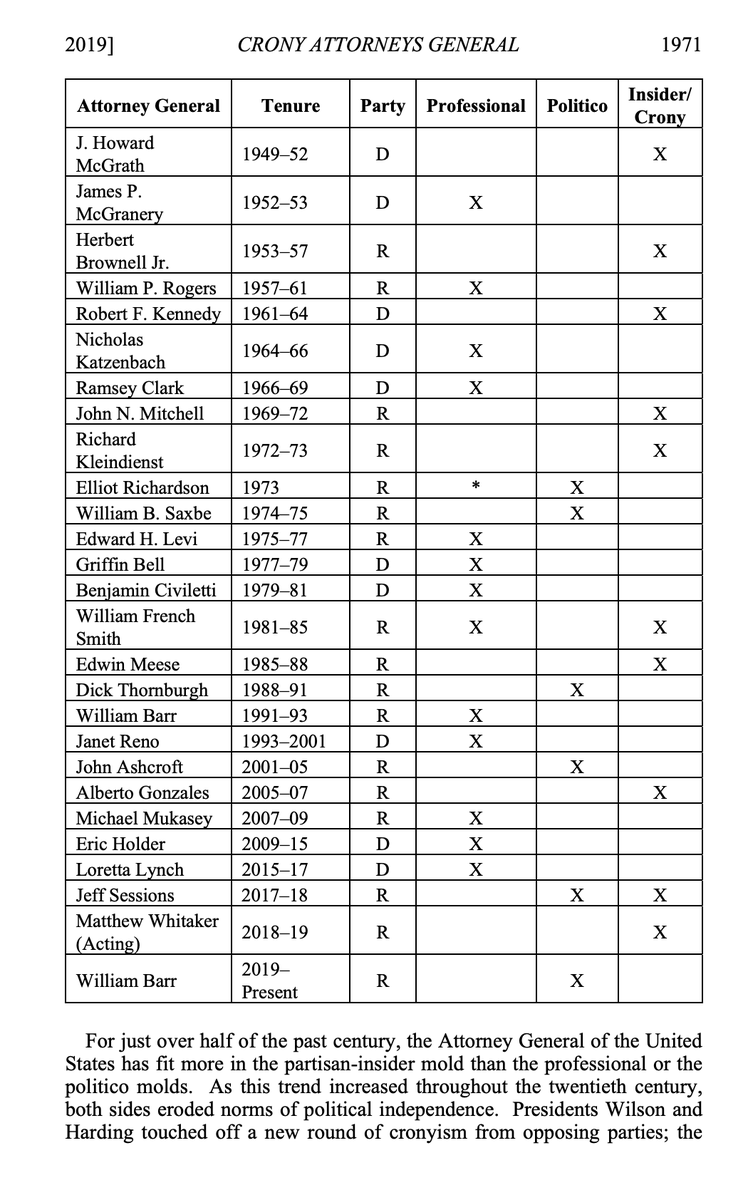
This thread on Doug Jones as AG raises problems of the modern Crony AG model, as opposed to what I’ve called the Professional or Politico model - at precisely the time we need more professional independence at DOJ.
Jones would be a Crony mistake, either real or perceived.
Jones would be a Crony mistake, either real or perceived.
https://twitter.com/mikememoli/status/1336356149503856641
2/ My article here from 2019 on the Professional/Politico/Crony models for AG in US history.
If I hadn't seen this thread, I'd have set Jones more as "professional" (long-term background w/in DOJ). But Biden picks Jones, how can he not be seen as a Crony?
ir.lawnet.fordham.edu/flr/vol87/iss5…
If I hadn't seen this thread, I'd have set Jones more as "professional" (long-term background w/in DOJ). But Biden picks Jones, how can he not be seen as a Crony?
ir.lawnet.fordham.edu/flr/vol87/iss5…
3/ Democrats picked more Crony AGs in the first half of the 20th century. But since Nixon, Republicans generally picked Crony AGs.
No Democrat has appointed a Crony AG since JFK had his brother RFK.
I sincerely hope Biden does not make a Cronyist mistake.
No Democrat has appointed a Crony AG since JFK had his brother RFK.
I sincerely hope Biden does not make a Cronyist mistake.
4/ Here is my chart of Professional/Politico/Crony AGs (the article goes all the way back to the first AG, but this page goes back to 1949.
Note how Democrats stopped appointing Crony AGs, just as Republicans started.
This must stop now.
Note how Democrats stopped appointing Crony AGs, just as Republicans started.
This must stop now.

5/ I have no dog in this fight, except for my long-term concern about and historical study of DOJ's independence. "Appearance of bias" is a real legal standard for justice.
And this is worrisome:
"Jones was Alabama co-chair of Biden’s 1988 campaign and helped on his 2008 bid."
And this is worrisome:
"Jones was Alabama co-chair of Biden’s 1988 campaign and helped on his 2008 bid."
• • •
Missing some Tweet in this thread? You can try to
force a refresh


